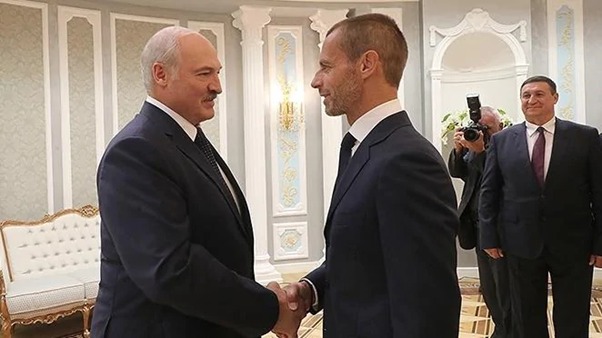Three times Uefa has rejected a submission to investigate state interference in Belarusian football, neglecting evidence of human rights abuse, threats, torture and political appointment of officials.
By Lars Johnsen
Five days after the fraudulent presidential election of 9 August 2020, where Alexander Lukashenko claimed to have been re-elected with 80 per cent of the votes, Mikhail Zalevsky, the general director of 15 time Belarusian champions BATE Borisov, publicly condemned the violence committed by the country’s law enforcement institutions. Zalevsky had previously held senior positions within the Ministry of Internal Affairs, and been head of economic crimes units of the police for several districts of the capital Minsk.
To protest the regime’s illegal actions, he threw away his police uniform and published his protest on Instagram.
“This did not go unnoticed by the Ministry of Internal Affairs or the Belarusian KGB. I started receiving threats on social networks and anonymous calls,” Zalevsky writes in a letter to Josimar.
According to him, the Belarusian Football Federation (BFF), the KGB and the Ministry of Internal Affairs began to pressure the football club to have him removed from the club, which the club obliged on 2 September 2020.
On the streets of the capital Minsk and other cities, before and after the presidential election, the security forces went into action. Pepper spray, rubber bullets, mass arrests of people condemning the dictatorship was the order of the day. Torture and beatings are well documented. The crackdown on dissidents has continued, a...



